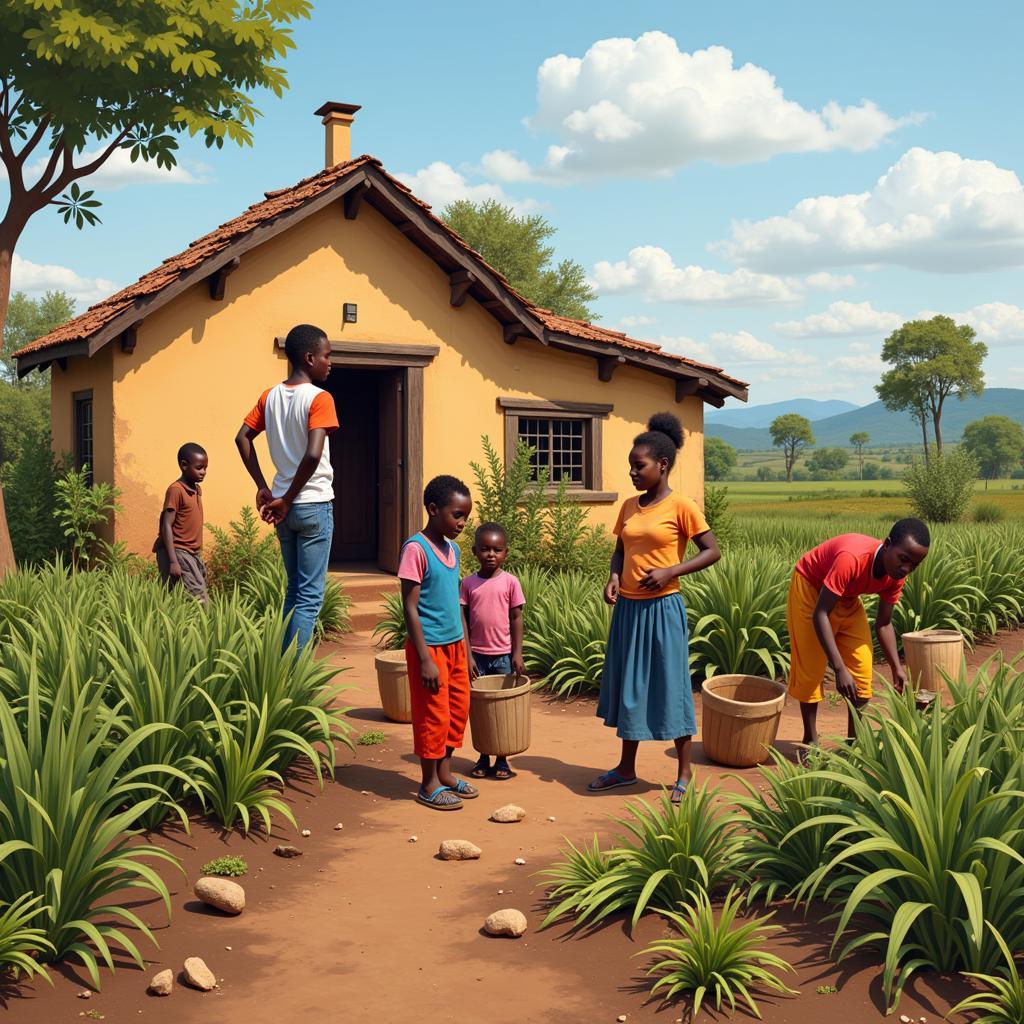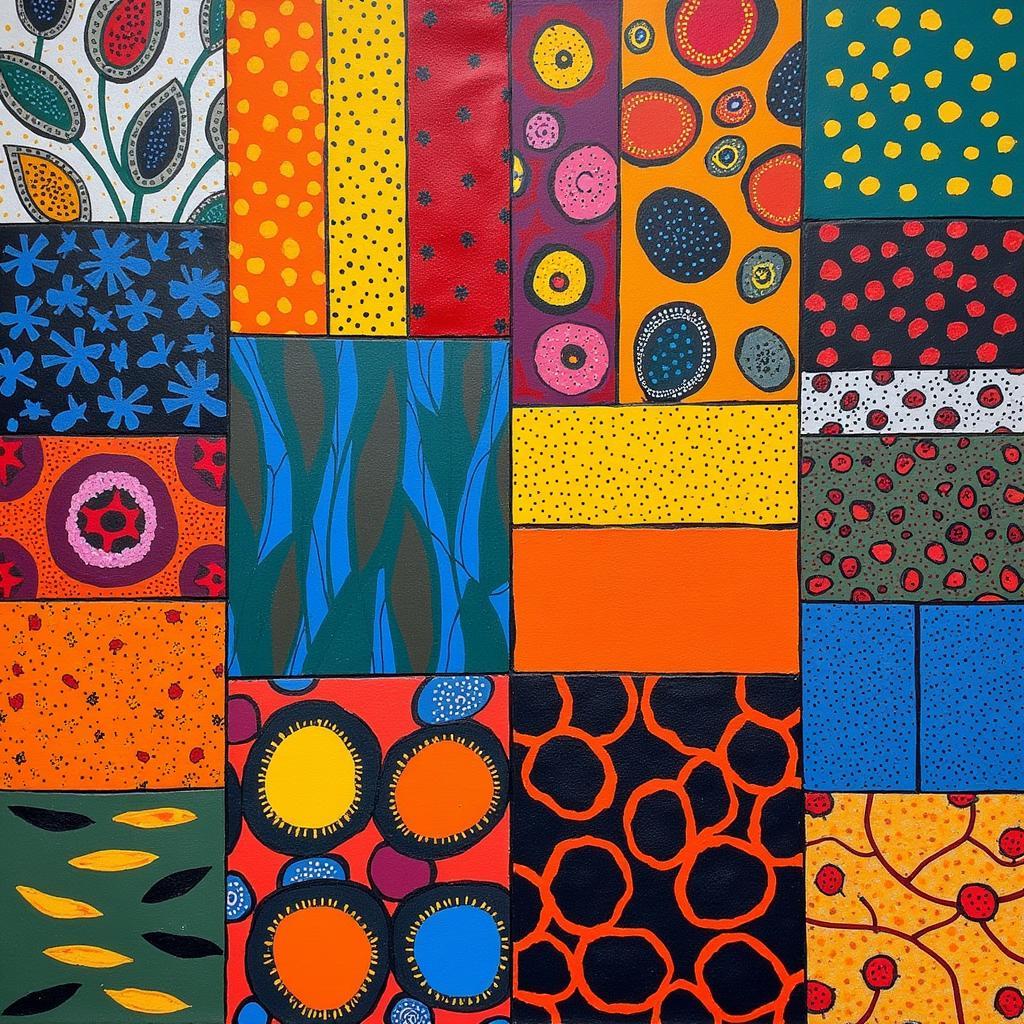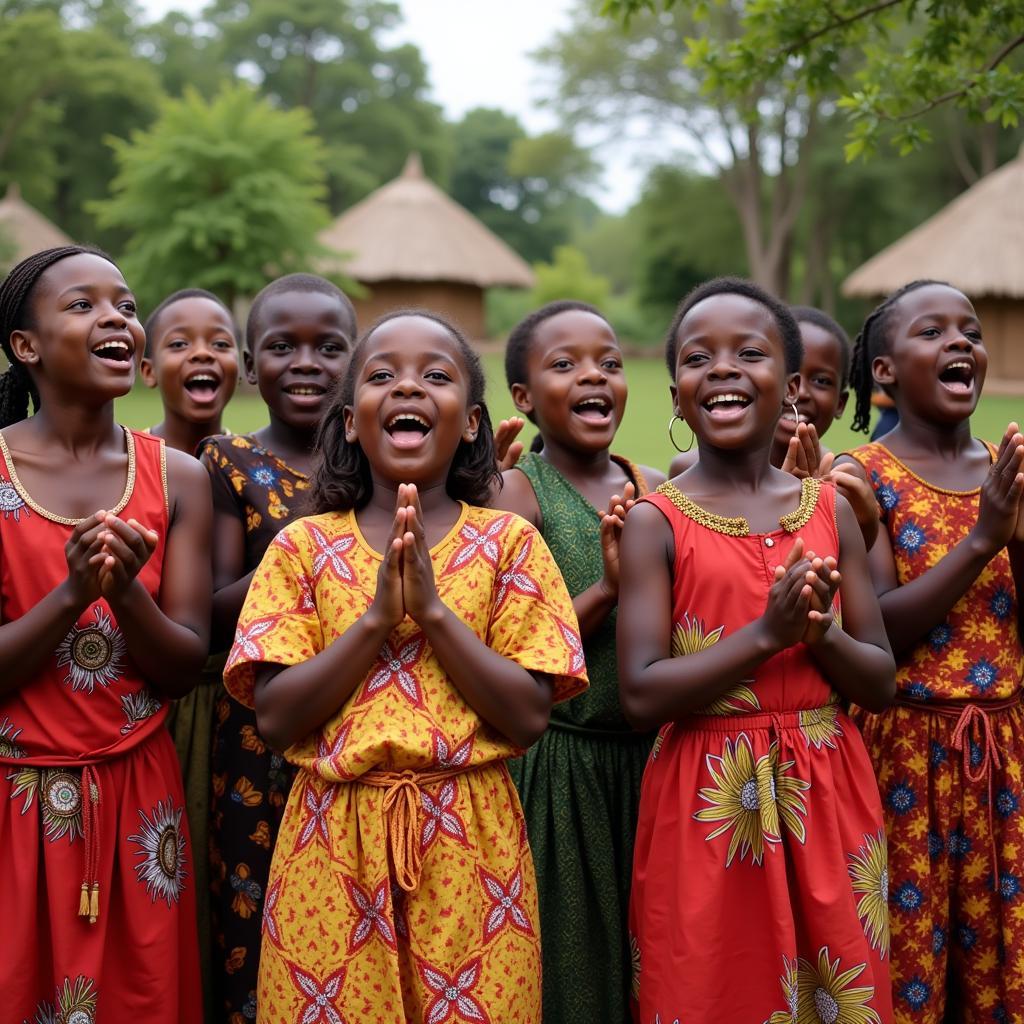Unveiling the Charm of an African Farm House
An African Farm House is more than just a dwelling; it’s a testament to resourcefulness, tradition, and a deep connection to the land. Imagine waking up to the African sun rising over fields, the air alive with birdsong and the promise of a new day. This is the reality for many, where the farm house serves as the heart of a life intertwined with nature’s rhythm.
Diverse Landscapes, Diverse Designs
Across the vast expanse of Africa, the landscape varies dramatically, from rolling savannas to verdant rainforests. This diversity is reflected in the architecture of African farm houses, which are as varied as the cultures they represent.
Embracing Local Materials and Traditions
Many farm houses across Africa are built using readily available, locally sourced materials. Mud bricks, dried in the sun, are a common sight, offering excellent insulation against the heat. Thatched roofs, crafted from woven grasses or palm leaves, provide natural ventilation and a cool respite from the sun. These traditional building methods are not only sustainable but also reflect a deep respect for the environment.
Adapting to the Climate
An African farm house is built to withstand the elements. In regions with heavy rainfall, you might find farm houses elevated on stilts to avoid flooding. In arid areas, houses are often built with thick walls and minimal windows to keep the interior cool.
The Heart of Rural Life
 Daily Life in an African Farm House
Daily Life in an African Farm House
The African farm house is more than just a place to sleep; it’s a hub of activity and the center of family life. It’s where meals are shared, stories are told, and traditions are passed down through generations. The house often serves multiple purposes, with spaces for food storage, livestock, and even small-scale cottage industries.
The Role of Agriculture and Livestock
For many African families, the farm house represents self-sufficiency. The surrounding land provides sustenance, with crops ranging from staples like maize and beans to cash crops like coffee and cocoa. Livestock, such as goats, chickens, and cows, are often kept close by, providing milk, meat, and eggs.
Community Spirit and Ubuntu
In many African cultures, the concept of “Ubuntu” emphasizes the interconnectedness of humanity. This communal spirit is evident in rural areas, where neighbors often help each other with farming tasks, share resources, and celebrate important occasions together.
The Modern African Farm House: A Blend of Old and New
As Africa develops, so too does the African farm house. While traditional building methods and materials are still valued, modern amenities are becoming increasingly common. Solar panels are now seen on rooftops, providing a sustainable source of electricity. Improved water harvesting techniques ensure a reliable water supply, and access to information technology connects rural communities with the wider world.
Exploring the Diversity of African Farm Houses
From the mud-brick houses of the Sahel to the brightly painted homes of South Africa, the African farm house offers a window into the continent’s rich cultural tapestry. By understanding the unique challenges and opportunities of rural life in Africa, we can appreciate the resilience, ingenuity, and deep connection to the land that defines these homes.
FAQs
1. What are some common building materials for African farm houses?
Common materials include mud bricks, thatch, timber, and stone. The specific materials used vary depending on the region and its available resources.
2. How has modernization impacted African farm houses?
Modernization has brought about the incorporation of sustainable technologies like solar panels and improved water systems, while still retaining traditional design elements.
3. What is the significance of “Ubuntu” in rural African communities?
Ubuntu, meaning “humanity towards others,” emphasizes community spirit, collaboration, and support among individuals in the community.
4. Do people still live in traditional African farm houses?
Yes, many people, especially in rural areas, continue to live in traditional farm houses, although they are increasingly incorporating modern elements.
5. What are some of the challenges faced by those living in African farm houses?
Challenges can include access to clean water, electricity, healthcare, and education. However, there are ongoing efforts to address these issues and improve rural living standards.
Need Help with Your Farm in Africa?
Do you have more questions about African goat breeds or want to know more about sustainable farming practices in the region? Are you interested in learning about African birthday traditions or how the African Development Bank call for proposals 2017 impacted agriculture? Explore more on our website!
Contact us for expert advice and support:
Phone: +255768904061
Email: kaka.mag@gmail.com
Address: Mbarali DC Mawindi, Kangaga, Tanzania.
We have a dedicated customer support team available 24/7.

